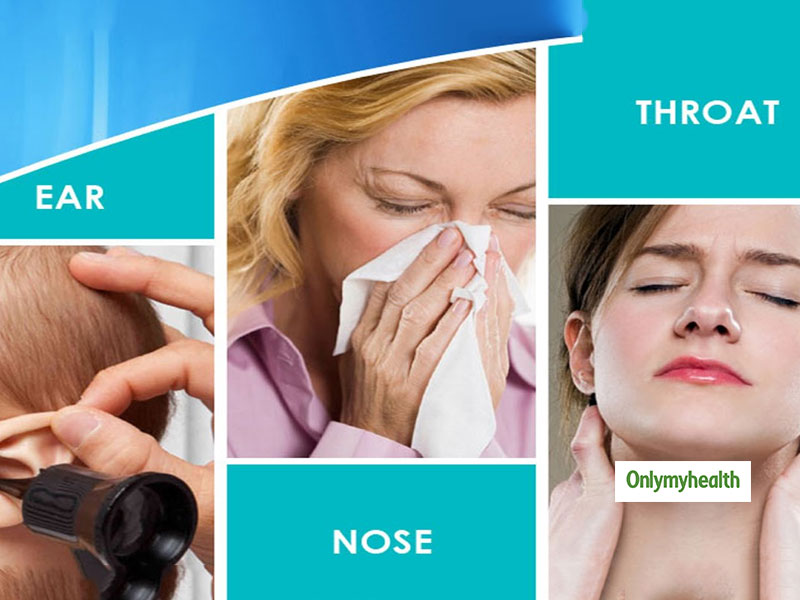
Bacteria cause bacterial infections, while mold and dust mites cause fungal infections and seasonal allergies. There is also a lot of pollen in the air, leading to some seasonal allergies. As we all know that virus increases in cold temperatures, leading to viral infections in monsoon.
Table of Content:-
Monsoon And ENT Problems

Allergic rhinitis and sinusitis are some of the common ENT problems faced during monsoons. In these conditions, patients have running nose, cold sores, headaches and sometimes fever. Also, fungal infections in ear and nose are common to encounter during this season.
Preventing ENT Problems During Monsoon

Bacterial infections, fungi and mold in the living environment and diseases caused by them may be reduced by:
- Maintaining hygiene
- Periodically wiping all surfaces which may attract dust and dirt
- Keeping the environment at home clean
- Vacuuming all fabrics, carpets, upholstery and soft toys
- Regular cleaning of fans and air conditioner filters
- Keeping shoes and wet items outside or near a window to dry
- Avoid wearing damp clothes
- Some other essential care tips to prevent such ailments are:
- For those who can afford, use dryers to dry clothing and fabrics
- Wet walls and spots in the house should be treated to avoid mold and fungal growth
- Avoid contact or proximity with people who are already infected with a cold or sore throat
- Avoid contact with allergens like smoke, air fresheners, sprays and other substances that can irritate the throat.
- Keep the ears dry, especially when bathing. Fungi and bacteria trapped in the ears cause infections.
- Avoid using earbuds during the monsoon as this may introduce bacteria and fungi into the ear.
- Do not put oils or other organic liquids into the ear as it forms a breeding ground for infections.
- Wash hands thoroughly with antibacterial soaps before eating
- Swimming during the monsoon is to be done carefully, keeping the ears dry or drying the ear thoroughly after.
- Have home fumigated if black patches appear on walls
Also Read: Here’s All You Need To Know About Prognosis Of Dengue Fever
Boosting Immunity With Diet And Exercise

Drink plenty of fluids, especially warm liquids like tea or coffee or broth soups to lower the chances of infections. Include immunity-boosting foods like fresh vegetables and fruits after washing well. Other immune-boosting foods are yoghurt, oats and barley, garlic, tea, chicken soup, sweet potatoes, cloves, ginger, black peppers, bell peppers, broccoli, spinach, almonds, turmeric and green tea. Fifteen minutes of brisk walking or aerobics a day boosts natural immunity. Indulge in exercising for good health. Get out in sunlight whenever possible. Manage sleep and stress levels by meditation and yoga.
Also Read: Smoker’s Cough: Causes, Symptoms and Treatment
Treat Infections Promptly
People with reduced immunity like diabetics or those on chemotherapy radiotherapy, small children and transplant patients should get infections examined and treated by a doctor as soon as possible. Sinusitis, ear discharge, sore throats should be attended promptly with medication as they are easy to cure with minimal medicines in the early stages.
With inputs from Dr Dillon Dsouza, Consultant ENT and Head and Neck surgeon, attached to Jaslok hospital, Breach Candy Hospital and Desa”s hospital
Read more articles on Other Diseases
Read Next
World Organ Donation Day 2019: Declared Brain Dead, Families Can Pledge Organs For Donation
How we keep this article up to date:
We work with experts and keep a close eye on the latest in health and wellness. Whenever there is a new research or helpful information, we update our articles with accurate and useful advice.
Current Version